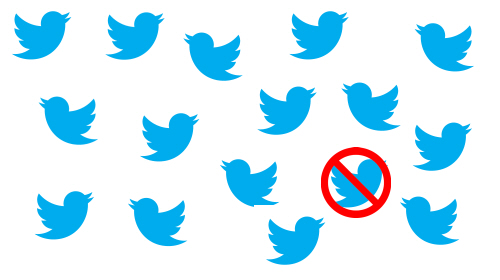
The government is using shaky legal arguments to silence major Internet companies without giving them – or the public – the opportunity to respond. In three separate recent cases, the government has sent a grand jury subpoena to Yahoo or Twitter and requested a gag order from a magistrate judge, attempting to bar these tech companies from informing the customers in question. To make matters worse, the government won't disclose its reasoning for requesting the gag, effectively shutting the public out of the courthouse without any explanation.
The ACLU filed a motion last night seeking to represent the public's interest in open court proceedings when the government seeks gag orders on Internet companies. We know about the three cases only because the magistrate judge pushed back on the government, inviting Yahoo and Twitter to weigh in and ordering the government to make its legal arguments public. The government appealed those orders to a district court, where the judge ordered the appeals sealed. The ACLU is now moving to intervene in the district court for the purpose of opening these gag order proceedings to public scrutiny. In a democracy, if your government is going to gag someone from speaking, it should publicly explain why.
The federal government has an awesome array of tools and technologies in its investigative arsenal, and it often goes to great lengths to shield its tactics from outside scrutiny. Not only does this secrecy prevent people from challenging surveillance used against them, but it also means that elected officials can't openly debate the underlying policies, and communities can't discuss their government's actions.
Traditionally, gag order applications are considered ex parte – meaning with only the government's argument on the record before the court. However, Magistrate Judge Facciola noted that the government's request in this case raised controversial legal questions, and so invited Twitter and Yahoo to respond. (In one case, the government withdrew its gag order application after Judge Facciola invited Twitter's participation.) He also ordered the government file public copies of its gag order applications with limited redactions.
We are now asking to unseal the documents in these cases, and expressing support for Judge Facciola's invitation for responsive briefing from Twitter and Yahoo. As we say in our filing:
The ACLU is troubled, as the Court should be, by the government's overuse of gag orders to prevent public and judicial scrutiny of its invasions of citizens' privacy. Transparency concerning judicial documents like the ones at issue ensures fairness, decreases bias, improves public perception of the justice system, and enhances the chances that the resulting orders will be well-justified and narrowly tailored. These interests are particularly acute where, as here, the government relies on a controversial statutory authority affecting the First Amendment rights of private individuals and where at least one court has openly questioned the applicability of that authority.
If the government is going to take extraordinary measures to silence the companies we rely on daily, then it should be prepared to explain itself.
Learn more about government secrecy and other civil liberty issues: Sign up for breaking news alerts, follow us on Twitter, and like us on Facebook.

